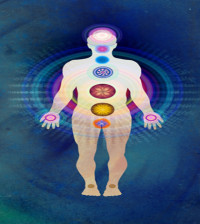- 5 Tips To Finding Peace Within Yourself
- The Do’s and Don’ts of Learning How to Accept Yourself
- How to Find Your Inner Peace and Transform Your Life
- 8 Benefits of Having an Open Mind and How to Get One
- Learn How To Be A Happier Person
- What Is The Meaning Of Life?
- Laws of Abundance – The Riches of Love and Joy
- How to Be Laid Back By Following These 9 Simple Strategies
- The meaning of confucius’ golden rule – 4 practical ways of living it
- 3 methods of unleashing the power of contentment in your life
Breathe New Life Into Your Memory With Meditation

“It’s right on the tip of my tongue.” All of us have used that expression from time to time when we were struggling to remember the name of a movie, a song or our next-door neighbor’s grandson. Most of the time, we recover the needed information after a few minutes of relaxation. While an occasional bout with forgetfulness is normal, a constant inability to remember the simplest things can interfere with our ability to function.
Studies show that a large percentage of memory loss cases are linked to stress and anxiety. When we become stressed our bodies release increased amounts of cortisol, which results in reduced cognitive ability and other physical ailments. Even small amounts of stress can affect short-term memory. Prolonged bouts with anxiety can create serious memory impairment.
Depression also takes a toll on the memory because it impacts a person’s ability to concentrate. The mental and physical lethargy associated with depression create a “brain fuzz” that compromises brain function. Depressed people may be too unfocused to notice facts and people that need to be remembered.
The fast-paced world we live in contributes to the problem because it forces us to multi-task, leaving little time for clarity, focus and reflection. This frantic lifestyle gradually impacts overall health, including cognitive functions, in a negative way.
Aging is another factor in memory impairment. The brain loses some its sharpness with age. But there are steps you can take to minimize aging’s effects on the brain.
Research Shows That Meditation Heightens Mental Clarity
Scientific research has proven that meditation can improve memory by altering the structure of brainwaves. Meditation has been shown to increase the “gray matter” that is involved in processing information. When you meditate, you actually “exercise” the cerebral cortex and it gets bigger. Brain images taken in scientific studies show that people who meditate regularly have more activity in the frontal cortex which increases mental capacity.
Meditation also promotes “whole brain synchronization” which allows the left and right brain hemispheres to work together. Most of us favor one side of the brain or the other. The left side of the brain governs the logical, practical, mathematical elements of cognitive function. The right side promotes thinking that is intuitive, abstract, creative and big-picture focused. Great thinkers through the ages have shown the ability to use both sides of the brain simultaneously. Regular meditation increases your ability to use both sides of your brain.
The Techniques Are Easy To Learn
The good news is that meditation is available to everybody and it is easy to learn. You don’t need months of training, just a willingness to improve your cognitive function. It doesn’t matter how crowded your schedule is because meditation takes only minutes a day.
The important thing is to set aside the time and remove yourself from distractions. Find a quiet place, sit down and focus only on your breathing. Inhale and exhale slowly and focus on the moment at hand. The deep breathing associated with meditation invokes a “relaxation response” which promotes mental clarity. The relaxation response also promotes physical health because it lowers blood pressure, slows the heart rate and increases blood flow to the tissues of the body.
If you have been struggling with memory lapses and want better cognitive function, join the millions of people who have embraced the brain-boosting power of meditation. A better memory is just a few breaths away.








































You must be logged in to post a comment Login